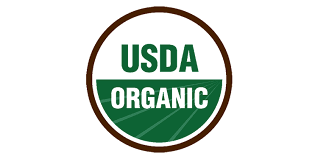Consumer Packaged Goods (CPG)
CPG Company Claims Require Special Attention

Any Consumer Packaged Goods (CPG) company must necessarily deal with various packaging, labeling and promotion requirements. Those requirements dictate the kind of claims a a CPG company can make about it offerings. For example, one particular question regularly comes up: Can I claim my product is Organic?
In the United States, use of the term “organic” is regulated by the U.S. Department of Agriculture (“USDA”). Any agricultural product that claims to be organic or uses the USDA organic seal on its packaging must comply with USDA organic regulations.
USDA organic regulations describe organic agriculture as “the application of a set of cultural, biological, and mechanical practices that support the cycling of on-farm resources, promote ecological balance, and conserve biodiversity.” These practices include maintaining or enhancing soil and water quality; conserving wetlands, woodlands, and wildlife; and avoiding the use of synthetic fertilizers, sewage sludge, irradiation, and genetic engineering.
Consequently, the USDA mandates that all organic products meet strict production and labeling requirements. Under USDA regulations, if you produce a product and want to claim it is 100% organic, all ingredients must be certified organic by a certifying agent authorized by USDA’s National Organic Program.
If your product is not USDA-certified, you cannot make any organic claim on the front panel of the product packaging, nor use the USDA’s organic seal.
This blog post contributed, in part, by Traverse Legal Counsel and CPG attorney Lorrie Orton Heath, who focuses on providing business and legal strategy to Consumer Packaged Goods companies, including food and beverage products, and life sciences companies, including those geared toward pharmaceuticals, medical devices, and medical equipment.